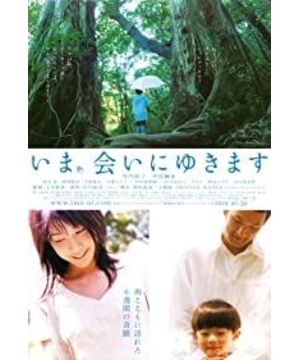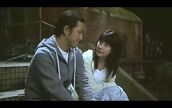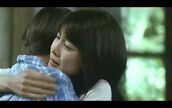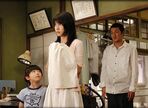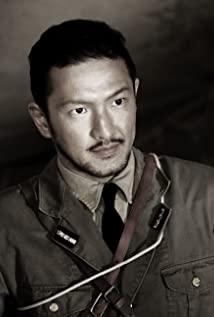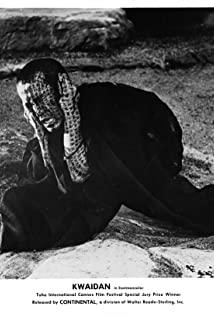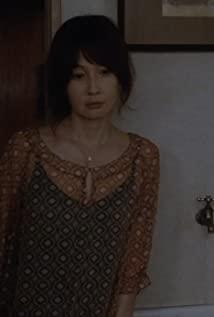It is said that the film has other names, "Meet in the Rainy Season" and "Meet You Now". I think the translations of "Love You Through Raindrops" and "Meeting in the Rainy Season" are too sensational, and they are obviously meant to please literary and artistic youths. tacky. Comparatively speaking, "Now to See You" has more connotations, and it also coincides with the scene in which the heroine turns around and walks into the phone booth to call the hero, so it can better reflect the theme of the story. The English name of the film, Be With You, is the most natural.
The "traveling" of the story is very cleverly used. There are both forward and backward passages. It is these two groups of time-travel heroines who have three roles in the story: the present, the past, and the future. The characters are interspersed and influence each other in life. Such a clever arrangement also allows the story to avoid the vulgarity of ordinary time-travel dramas. Of course, at the same time, it may make the audience a bit brain-burning and bring some confusion in the understanding of the plot.
The heroine is an ordinary and virtuous wife and mother in the first half of the film, and in the second half, she is elevated to an extraordinary person who would rather pay the price of her life than give up building a nest with those she loves and enjoy an ordinary family life. people. The author may not only praise the heroine's daring to pursue her own love, but also praise the sacrifice of her life for a period that can only last a few years and seems to be an ordinary family life, but also has the recognition of the value of ordinary life , the recognition of the persistent spirit of love. The heroine's dialogue with the father and son at the end of the rainy season can be regarded as the author's inner words: "Mom, I'm sorry! I killed you." Met for you, united to see you, you are a child who brings happiness, you bring happiness to me!". "I'm sorry, I didn't bring you happiness, I didn't make you happy." "I'm very happy, always happy, after falling in love with you, I will be happy. My happiness is all given by you, can be in My greatest happiness is by your side." The heroine never thought that she was a victim, nor did she think that her own sacrifice brought her happiness, but the father and son brought her to her. I think, this is also the value of love, the essence of marriage. The essence of family happiness is not what you sacrifice, but what you get. Your children come together because of your encounters, they should be the crystallization of your love, and nothing else. Your partner is happy because you love her (him), not because he or she can bring you happiness. If we all have this understanding of each other, then we should have different attitudes and requirements to our partners and children, and we will have different understandings of the acquisition of happiness. The heroine knew that to obtain this short and ordinary life, she had to pay the price of her life, but she took the initiative and bravely chose him. This moth-to-fire choice had to move us. At the same time, it also makes us reflect that in real life, even if we are not asked to pay the price of our lives, many of us have been married for many years, and faced with a life that is quite different from our ideals, we will regret our own choices, and we will all feel sorry for the people around us. Dissatisfied with the mediocrity of people. In the face of our children, we always think that the parents have paid so much for them, but we never think that they have brought so much to the parents. The film should not only move the audience, but also touch.
The film tells the story of their unrequited love for each other through the male and female protagonists, bringing the audience back to the love in their youth. The love at that time was really simple, only the word like. At that time, I was really stupid, I only knew single thoughts, but not in love, but it was this self-imposed one-way love that was so sincere and pure. Just like a line in the movie, I am so comfortable around you! In fact, as an unrequited love, I am not at all comfortable around him (her), I am always afraid that I will watch the other party involuntarily, and I am always at a loss. But this kind of happiness is really unforgettable compared to the freedom of those who have no interest. In addition, in the male protagonist's narration, because the male protagonist found that he had very obvious symptoms, he voluntarily chose to withdraw from the relationship that had just begun. At that moment, we thought that he made a rare sacrifice for this suffering love, and was also moved by his kind and even noble sentiments. But through the heroine's diary, we found that the heroine knew that this love cost her life, but she still chose this love bravely, so we found out that the heroine is the biggest love victim. If she hadn't met him, if she hadn't married him, her life might not have stayed at the age of 28, but that was not the life she wanted, so she chose a loving and short life, which is not only a choice Brave and wise.
There are several very interesting shots in the movie: red umbrellas, sunflowers, stone arches, sunny dolls, water droplets. A family of three goes out on a rainy day, and the heroine always holds a bright umbrella. This particularly bright color makes people feel pity for the fact that she is about to leave. This bright and incongruous color means that she is not in harmony with her father and son. Same identity -- she's a deceased person. The hero and heroine meet on a vast field of sunflowers; the heroine and her son plant a field of sunflowers in front of the house, and these sunflowers represent life and hope. When a family of three goes to the woods, they always have to pass through a dark arch. This door seems to be like a bridge connecting the world and heaven. It always reminds the audience that the side of the door is the world, and the other side of the door is heaven. The sunny day doll not only represents the son's hope for the arrival or continuation of the rainy day, but also symbolizes the passage of the heroine's life. There is also that interesting water drop, when the heroine and the hero are preparing to return to heaven together, a drop of water drops, and the heroine in the reflection disappears from the hero's side, a very beautiful and imaginative picture. Overall, the film is smooth and melodious, but also has the restrained tradition of Japanese films, which is very rare. For the same theme, Korean directors generally use too much force and actors perform too emotionally. And if it is a Chinese director, it is usually difficult to be reasonably smooth.
In the movie, I think the best performer is my son Yuji. His natural and simple performance and voice moved me a lot. Relatively speaking, as a father's actor, I feel that my skills are a little lacking, and I can't interpret the connotation of the character well. The heroine is generally good, she has a good grasp of the character's requirements, and the heat is just right.
View more about Ima, ai ni yukimasu reviews


